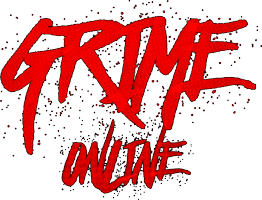On August 5, Giggs released his fourth LP Landlord, and it’s quickly become your favorite artist’s favorite album of the summer. Skepta’s been performing the lead single “Whippin Excursion” at all his own shows, and The Weeknd shouted it out on Twitter. Meanwhile, JME ran a dance competition offering £500 to whoever best performed the best routine to the headbanging track “The New Shit,” and Stormzy woke up all his neighbors on release day. With the whole grime and U.K. rap scene backing it (including radio stations like BBC Radio 1Xtra, which put the whole album on the A playlist), Landlord independently reached number two in the U.K. charts on Friday August 12, marking Giggs’s highest ever chart position.
All the things we love about Giggs (his sound effects, spontaneous giggles, and ability to get the most superb verses from U.K. rapper Kyze) are all in attendance on Landlord. It’s an addictive listen right from the opening bars of “The Blow Back,” a relentless six-minute relay between Giggs, south London rapper Dubz, and Stormzy. So it’s only right that we pay the Landlord his due, by looking back on how Giggs became such an important figure, and all the ways he’s innovated and strived to push U.K. rap forward.
In London, 2007, Giggs’s name was inescapable. His song “Talkin’ Da Hardest” — a charismatic rap over Dr. Dre’s beat for Stat Quo’s song “Here We Go” — was an anthem, booming in every club, car, and home stereo south of the River Thames. Whether you were a rap fan, or a rap fan’s parent trying to decipher the track’s explicit content (a sample lyric: Half of the crowds all snorting my Charlie), it was more than likely you’d heard the track. “Talking Da Hardest” was something new: gun and drug references were common, but rarely so cleverly devised, or as darkly humorous, as Giggs’s verses. The track’s depictions of violence sometimes made me wince, but its lyrical content oozed a rebellious attitude that made me want to blast it out over and over again.
The arrival of Giggs was the beginning of a journey that would later encourage many young men to get off the streets. Other rappers from south London such as Krept & Konan and Section Boyz picked up a microphone, and turned their own unique narratives into rap songs they would eventually make a living from.
Giggs’s work the previous year paid off, and in 2008, after self-releasing his debut album Walk in da Park, he was nominated for Best Hip-Hop Act U.K. at the BET Awards. The nominations included U.K. heavyweight MCs Wiley, Ghetts, Skepta, Chipmunk, and Dizzee Rascal, all artists who not only had street heat but had established themselves within the music industry. Being nominated alongside those artists, when he was only a year into his career, was an achievement in itself. So winning the award — which he did — was a true triumph for Giggs.
In August 2009, despite the police allegedly attempting to dissuade them from doing the deal, major independent label XL Recordings signed Giggs. In doing so, XL made a confident statement of trust. They were going to bridge the gap between the underground and the mainstream once again (as they did in 2003 with Dizzee Rascal’s acclaimed debut Boy In Da Corner), and take another talented young black boy out of the hood and into the charts.
Punctual
A photo posted by GIGGS (@officialgiggs) on
After releasing his second album Let Em Ave It on XL, Giggs collaborated with Boy Better Know members Wiley and Skepta. The track “Zip It Up” with Skepta addressed postcode [zipcode] wars: the top dons in north and south London had come together to make music, and it was magnificent. They showed the next generation of rappers that unity in music is A-okay.
In another unexpected yet somehow brilliant match, Giggs later collaborated with Ed Sheeran in 2013 on “Play It Loud,” a track on his third studio album When Will It Stop. Rappers collaborating with chart-topping artists in the U.K. often results in a watered-down, bubblegum pop imitation of their solo material. But Giggs held his own, while Sheeran adapted his style to the hard-edged beats and lyrics that were all over the rest of Giggs’s album. For a U.K. rapper to work with a No. 1 artist without compromising their own style was pretty unheard of until Giggs did it with Ed Sheeran. It gave us proof that integrity in rap music is paramount, and it can be maintained.
A photo posted by GIGGS (@officialgiggs) on
In 2011, Giggs was arrested and incarcerated without trial for being in the passenger seat of a vehicle containing a loaded firearm. At a time when things were continuing to look up for Giggs (he had just been nominated for his second MOBO Award), this setback compromised it all. It was a bittersweet time for fans who kept their hopes high, and for XL, who had taken a risk on an artist who was now unavailable for album recording and promotions. This was the beginning of a very long, very public dispute between Operation Trident — a London police initiative that combats gun crime — and the south London rapper.
But the ramifications of Giggs’s arrest were bigger than just Giggs’s career. It raised questions like: Would the government ever allow a young man to turn his life around? After all, Giggs had previously been imprisoned for firearm possession in 2003. Would his second arrest be a lesson for all from the Metropolitan police, that your past will follow you for the rest of your life? Fortunately, six months after his arrest, Giggs was acquitted of all charges. He tweeted his thanks: “GOD IS GREAT. Big Thanx to the jury for recognizing my innocence. Thanks to everyone for all the positive energy and support”.
After his release, his future in the industry was uncertain, but Giggs got through this rocky period by doing what he’s always done: he carried on making music. In 2013, he released his third album When Will It Stop on his own label SN1, with artwork that showed him walking away from destruction. Back in 2009, Giggs had released his debut album independently, and after his legal troubles he proved he could do it again, and do it even bigger. When Will It Stop was his highest charting record to date, landing at 21 in the U.K. album chart.
The album wasn’t only his most commercially successful, but his most thoughtfully experimental yet. Giggs had previously stuck to using producers within his SN1 camp, but this time he branched out, recruiting the likes of Mark Ronson and J.U.S.T.I.C.E. League. Conceptually, his lyrics revealed a reflective artist who was living in hope that his own son wouldn’t make the mistakes he had. The tracks retained the edge of Giggs’s earliest music while also being melodically infectious, and the lead single “(Is It Gangsta?) Yes Yes Yes” was picked up by BBC Radio 1Xtra.
When I caught up with him recently at the BBC studios, BBC Radio 1 and 1Xtra DJ Charlie Sloth explained to me why it was so important to him to premiere Giggs’s comeback single, and continue supporting the rapper even after his legal troubles. “Giggs is one of the most important artists of our generation, an artist who has never felt the need to conform or change what he does artistically for financial gain; a timeless artist who delivers timeless music.”
In 2013, just days before Giggs was slated to begin a 10-date headline tour in support of his third album, Police Licensing Officers stepped in and pressured venues into calling off the gigs, later citing “risk assessment.” The authorities had been targeting Giggs’s shows in this way since 2010, but they’d never shut one down so close to its scheduled date. This time, fans found out via Giggs himself, who issued a video apology on YouTube (above). At the end of the video, Giggs showed off a wide smile, and reminded everyone, “but the album’s coming out anyway.”
Despite the ban, the police couldn’t keep Giggs fully away from the stage. Giggs went on to perform at various shows, appearing as an unannounced guest with Chip, JME, and more. It became a game of cat and mouse: you just never knew where he would pop up, and — despite the police’s efforts to keep him down — it kept the name Giggs on everyone’s lips. In a statement he gave to the BBC in 2014, Giggs thanked the police for shutting down his tour, and “all this great promotion that they’re giving me. All these cancellations are making me more powerful.”
A photo posted by GIGGS (@officialgiggs) on
On August 6, 2016, a 16-year-old up-and-coming rapper from south London named Showkey was killed. Explicit footage of the incident circulated online, and once again the life of a young man had become a hashtag. At such a tragic time, it’s hard to find the words to say, but an Instagram post (above) from Giggs spoke eloquently, summing up the feelings of many in the U.K. music scene. “Come on my young Gs, I keep telling you we don’t have to live like this anymore,” it read. “Not saying everyone has to be friends, but man just hold their corners and focus on some presidential shit.” He went on to list rapper, director, and actor as career possibilities that are accessible to young people in 2016, adding, “This ain’t even a preaching ting, this is real shit, Coz I don’t want anyone to go through the crazy shit man went through.”
Giggs has been faced with plenty of barriers in the music industry throughout his career — he’s still not even able to perform in his hometown. But instead of giving up and heading back into a life associated with the streets, he’s persisted in being the best role model he can be. He speaks to his audience honorably and honestly, and continues to open up about how his personal experiences have shaped him, and how they could shape others too.
Landlord is a 14-track body of work that has you sitting up straight from the first track, but the highlight of the album is a song aptly titled “The Best.” The track features the U.K’s most underrated rapper Youngs Teflon, but before we even get to hear Tef’s verse, a raw Liverpudlian accent kicks in from newcomer Aystar. I’d never heard of Aystar before listening to this track, where he delivers a “Talkin Da Hardest”-style verse that has you flying off your seat and into the nearest wall. It’s crude, gully, and a welcome northern surprise in an album that breathes London.
Just one listen to the track certifies an ethos that Giggs has sustained throughout his career: whether you’re a new or old artist, if he likes your style, he’ll work with you. Giggs is constantly striving to bring through the next generation of rappers who will push the genre forward just like he always has.

